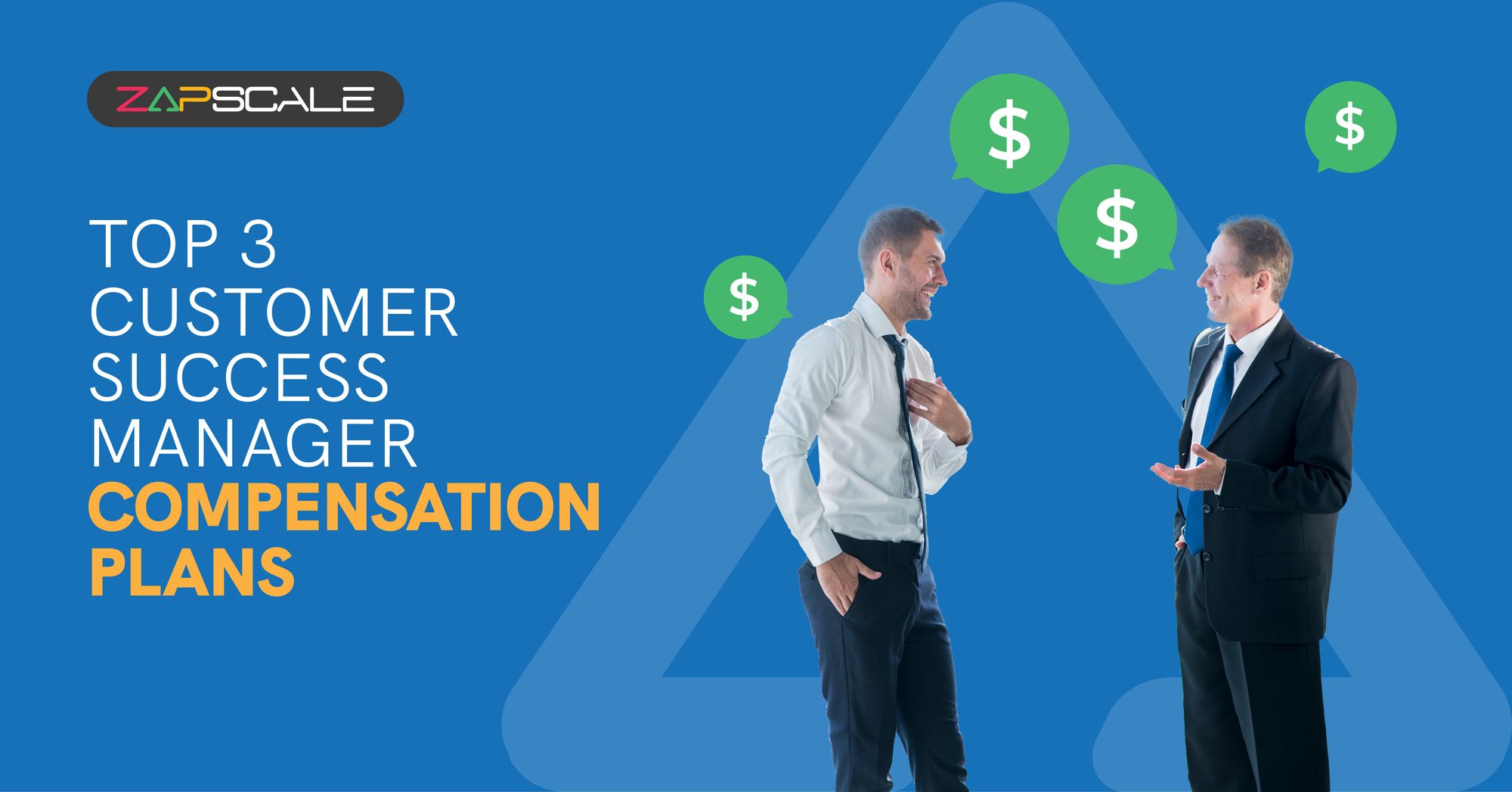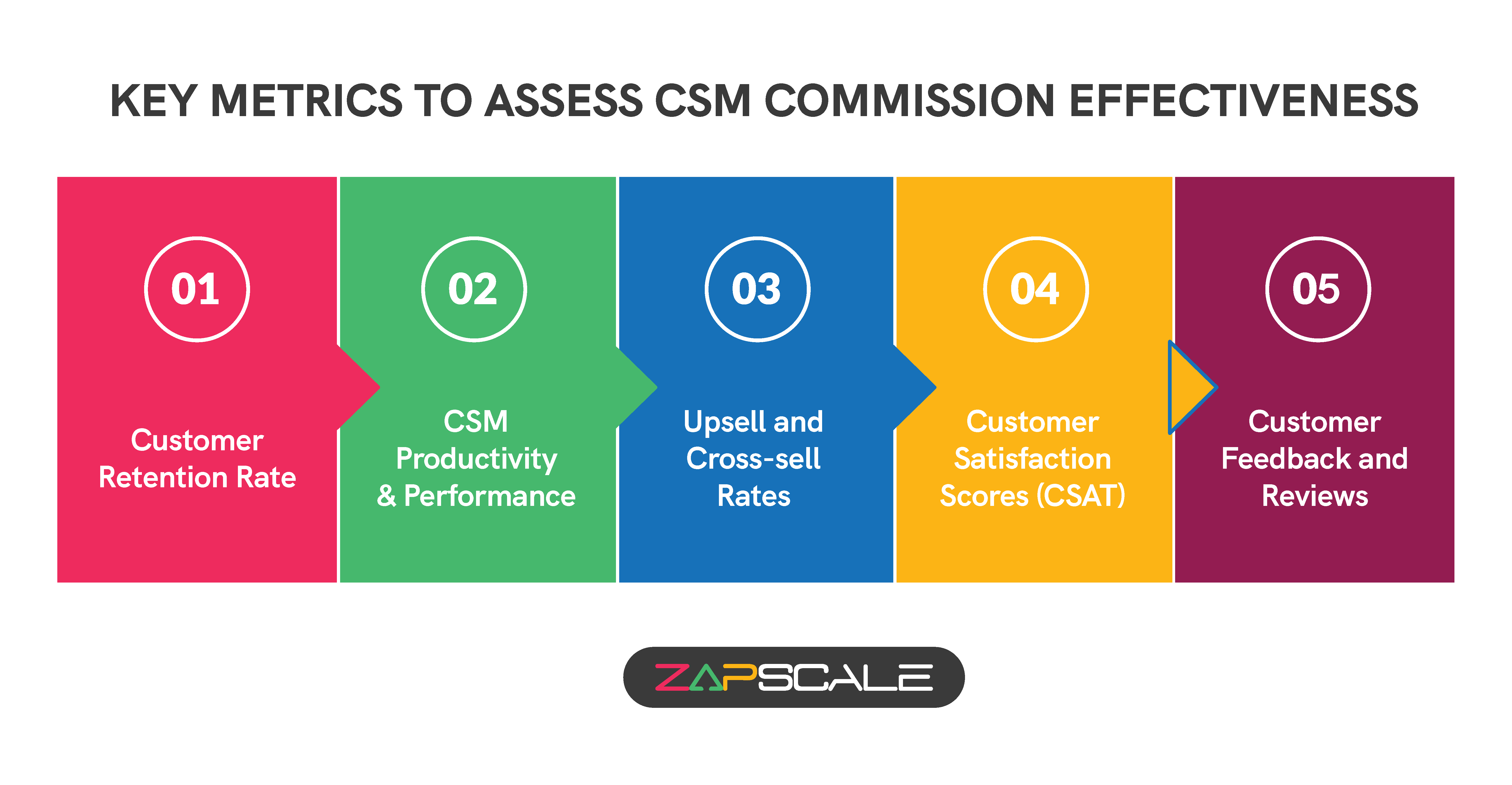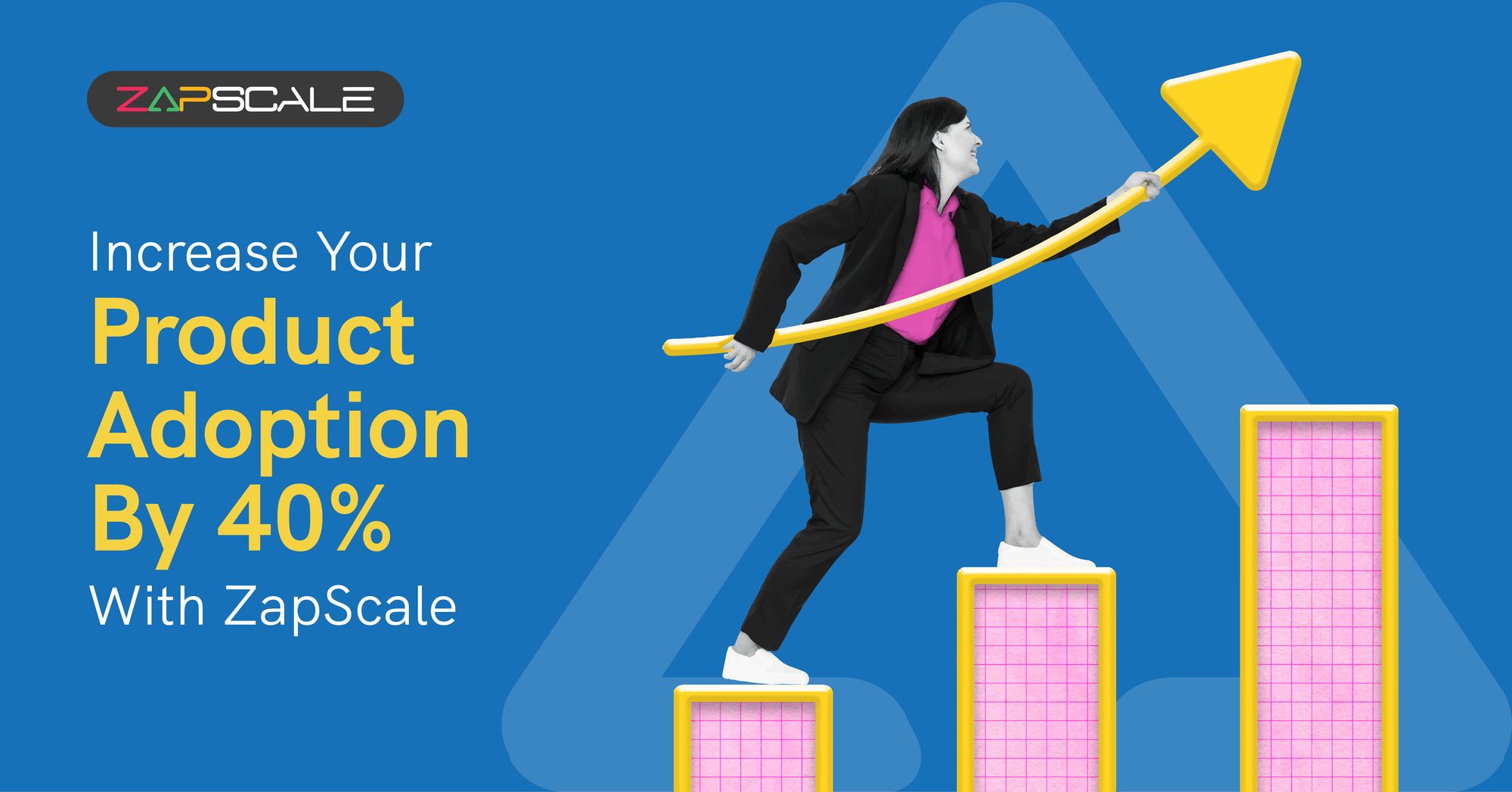CATEGORY > Customer Success Management
Commission Secrets For Customer Success Managers In 2024

As businesses aim for long-term success, a thoughtfully designed commission structure can be a great motivator, helping align customer success managers' efforts with the bigger picture.
Curious about how CSMs are compensated? Let’s look at the different commission models that make a real impact.
Customer success managers are compensated in various ways, such as base wages, bonuses, and commissions. While these terms can sometimes be confusing, each serves a specific purpose in recognizing and motivating CSMs.
An In-Depth Exploration Of Diverse CSM Compensation Models
Customer success managers are compensated using a variety of models, including base wages, bonuses, and commissions. While these terminologies can be confusing at times, they serve distinct objectives.
Commission structures are often tied to specific sales activity. CSMs receive a commission based on a percentage of sales or a fixed amount, usually paid out regularly.
However, this strategy may cause disputes. Some leaders support commissions to motivate CSMs, seeing them as critical contributors to company success.
Others argue that commissions can destroy confidence between CSMs and customers, diverting attention from providing value.
Bonuses are frequently more flexible and can be used to reward meeting team goals or extraordinary performance over time. These rewards are usually discretionary and can be awarded at specified milestones or during annual reviews.
When selecting a pay plan, examine the product type, average contract value, customer type (B2B vs. B2C), and the CSM's experience. Most compensation schemes are divided into three types: base salary simply, base salary plus performance bonuses, and base salary plus commissions.
A base salary-only model is prevalent in early-stage customer success teams, however, combining a base salary with bonuses helps promote teamwork. A performance-driven strategy might link bonuses to individual accomplishments, perfect for teams managing renewals and expansions.
Top 3 Commission Structures For CSMs
Let’s see the top 3 compensation models for CSMs and how they work. Each model has its own pros and cons, and understanding them can help both businesses and CSMs make more informed decisions.
1. Base Salary Only
This is the most straightforward structure. CSMs earn a fixed base salary, giving them financial stability. While it ensures predictable income, it does not motivate CSMs to exceed their responsibilities. To attract top talent, companies offer salaries higher than the industry average.
a. Benefits
- Predictable income
- Reduced risk of overselling
b. Drawbacks
- Lack of performance-based incentives
- Potential for unrealistic goals
2. Base Salary + Performance Bonus
In this model, CSMs receive a fixed salary with an additional performance bonus. The bonus could be tied to metrics like customer retention, growth, or other KPIs. This model gives CSMs the motivation to hit specific targets while contributing to the company’s overall success.
a. Benefits
- Rewards performance
- Aligns CSM goals with company objectives
b. Drawbacks
- Can be subjective and difficult to quantify
- May not account for exceptional performance
3. Base Salary + Commission
This structure combines a fixed base salary with a commission based on fixed KPIs, such as net retention rate, ARR growth, and upsells. This model is highly effective and most earning potential for high-performing CSMs, making it attractive to those who thrive on performance-driven incentives.

a. Benefits
- High rewards for high performance
- Strong incentive to drive revenue
b. Drawbacks
- This can lead to overselling
- May not prioritize customer needs over revenue
What CSMs Must Know?
When it comes to designing commission plans for customer success, there are certain things you must take into account as discussed below.
1. Commission Tiers
Be aware of how commission tiers are structured based on performance. This helps you understand the true potential for income at different performance levels. Aim to exceed expectations to move up the tiers and maximize your earning potential.
2. Commission Structures
CSMs must understand how their company’s commission structure works. Is it based on sales, renewals, or upsells? Knowing this allows CSMs to align their efforts with company goals and optimize their earnings. A transparent structure builds trust between the CSMs and the organization.
3. Commission Caps & Clawbacks
Keep an eye out for any commission caps or restrictions. If there are limits, make sure you are aware of them to plan your efforts accordingly. Also, be mindful of clawback clauses, which may require you to repay a portion of your commission if a customer cancels their contract. Understanding corporate policies can help reduce the chances of clawbacks.
4. Training And Resources
Many companies provide commission training and resources for efficient selling methods. CSMs should actively seek out chances to improve their skills and understanding. The more they understand the commission process, the more prepared they will be to navigate their obligations and maximize their profits.
5. Open Communication With Management
Maintaining open communication with management about commission structures and expectations is critical. CSMs should be comfortable discussing their performance, seeking clarification on any uncertain areas of the commission plan, and soliciting feedback. This proactive approach not only aids in understanding the complexities of commissions but also develops a culture of transparency and support among team members.
Is Your Commission Plan Delivering? Key Metrics To Consider
You can find the real value of your CSM commission plan by evaluating the following metrics:

1. Customer Retention Rate
This indicator measures how well CSMs engage customers. High retention suggests a successful commission plan that encourages relationship building, but dropping rates indicate a misalignment with long-term customer satisfaction objectives.
2. CSM Productivity & Performance
Assess CSM productivity and performance using measures such as deal size and sales cycle length. A well-aligned commission plan should increase efficiency and prioritize customer success, resulting in improved outcomes for both customers and the organization.
3. Upsell And Cross-sell Rates
Monitoring upsell and cross-sell success is critical. A commission system that incentivizes these efforts should result in higher rates, increasing income while ensuring customers receive more value from services.
4. Customer Satisfaction Scores
CSAT scores represent how customers perceive the quality of service. A compensation scheme that rewards CSMs for customer happiness should result in better scores, suggesting that exceptional service and support are prioritized.
5. Customer Feedback And Reviews
Qualitative feedback from customers provides information on the effectiveness of CSM. Positive feedback indicates that the commission plan motivates desired actions, but negative feedback may highlight places for improvement.
Going The Extra Mile: Innovative Perks That Stand Out
Apart from bonuses and other monetary monetary benefits, companies must provide additional benefits like the following:
1. Flexible Work Arrangements
Flexible work arrangements, such as remote work and flexible hours, increase employee happiness by providing a more personalized work environment. This builds trust, improves work-life balance, and boosts productivity and engagement.

2. Employee Stock Options (ESOs)
Allow employees to acquire a share in the company through ESOs. This links employees' interests with the company's success, as they benefit financially from its expansion. ESOs can be an effective incentive for attracting and retaining exceptional individuals.
3. Tuition Reimbursement
Help employees continue their education by providing tuition assistance for authorized courses or degrees. This can help employees learn new skills and progress their careers at your organization.
4. Parental Leave Benefits
Offer generous parental leave policies to help employees start or prosper their families. This indicates your dedication to work-life balance and attracts the best workers.
5. Subscription Services And Perks
Giving employees subscriptions to services like fitness apps, streaming platforms, or meal kits can make their perks more engaging and personal. Such perks demonstrate regard for employees' hobbies, which increases pleasure and engagement.
Insights From Customer Success Leaders And Recruiters
Based on insights from experienced customer success leaders and recruiters, here are some essential factors that contribute to success in this field:
1. Customer-Centered Culture
Customer success leaders emphasize the need to foster a customer-centric culture. Employees are encouraged to excel when customer pleasure is prioritized in decision-making, promoting loyalty and long-term relationships that fuel organizational growth and success.
2. Excellent Communication Skills
Effective communication is vital for developing relationships, comprehending customer demands, and resolving problems. Successful customer success professionals are good listeners, articulate communicators, and can tailor their communication style to diverse audiences.
3. Data-Driven Decision Making
Customer success leaders and recruiters stress the use of data in decision-making. Metrics such as customer happiness, attrition rates, and engagement levels aid in identifying strengths and weaknesses, allowing businesses to fine-tune tactics to fulfill customers' wants while maintaining a competitive edge.
4. Continuous Learning
The customer success field is continually changing. Successful professionals value lifelong learning and constantly seek opportunities for professional advancement.
Conclusion
Developing a just and equal commission structure for customer success managers is crucial. Ensure that the commission structure for CSMs is transparent, employs balanced measures, and aligns with business objectives. Offer competitive payouts, evaluate the structure frequently, and promote teamwork. Establish a dispute resolution procedure, take into account the complexity of customer accounts, and offer the required assistance and training. To promote a positive work atmosphere, acknowledge and honor outstanding performance.
In conclusion, understanding the commission structure for customer success managers is critical for motivation and alignment with company objectives, allowing firms to develop fair and effective compensation systems that promote success.
ABOUT THE AUTHOR
Sonali is a social media enthusiast and creative content writer with 3+ years of experience. With a passion for storytelling, Sonali delivers content that inspires, informs, and captivate readers.
Popular from Customer Success Management
Quality Content,
Straight To Your Inbox!
Subscribe for the latest blogs, podcasts, webinars, and events!

Write a Blog
If you have experience in CS and
a flair for writing, we’d love to
feature you.
Write to us on
hello@zapscale.com




